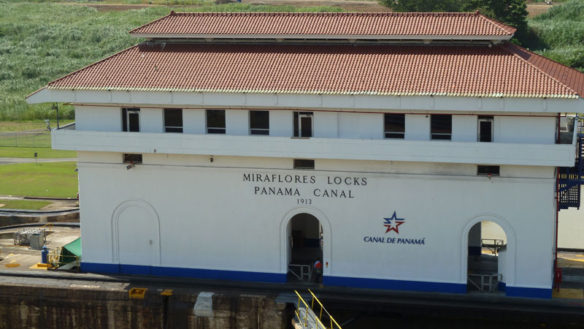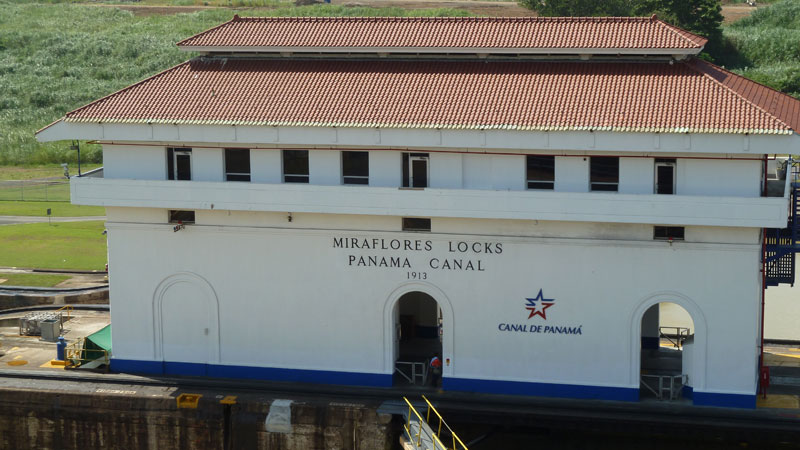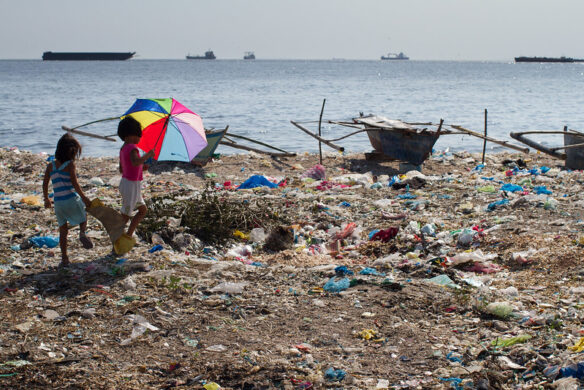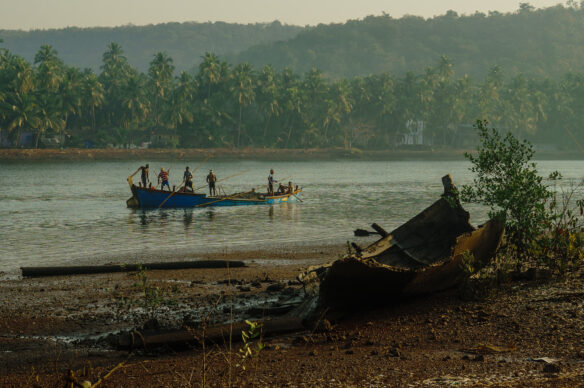
Panama canal. Photograph: © SAF — Coastal Care
Excerpts;
About 90 percent of everything we buy will travel on ships like these at some point. And all of these behemoths burn fossil fuel, contributing significantly to the warming atmosphere and shifting climate patterns…
Read Full Article; WIRED (11-09-2017)
“FREIGHTENED – The Real Price of Shipping,” a movie by multi award-winning filmmaker Denis Delestrac-©-2016; (03-31-2016)
90% of the goods we consume in the West are manufactured in far-off lands and brought to us by ship. The cargo shipping industry is a key player in world economy and forms the basis of our very model of modern civilisation; without it, it would be impossible to fulfil the ever-increasing demands of our societies. Yet the functioning and regulations of this business remain largely obscure to many, and its hidden costs affect us all. Due to their size, freight ships no longer fit in traditional city harbours; they have moved out of the public’s eye, behind barriers and check points…
Super-sized ships: How big can they get? Independent (10-21-2014)
Despite the physical limits and risks, ships of more than 450m are anticipated within the next five years…
Worldwide Ship Traffic Up 300 Percent Since 1992, AGU (11-29-2014)
Maritime traffic on the world’s oceans has increased four-fold over the past 20 years, likely causing more water, air and noise pollution on the open seas, according to a new study quantifying global ship traffic…
Breaking Bad on the Beach, NASA / Earth Observatory (09-28-2014)
Tens of thousands of ships ply the world’s oceans, bays, and rivers. But what happens when those ships have become too old or too expensive to operate? In most cases, they end up on the shores of Asia…literally…
Ship exhaust makes oceanic thunderstorms more intense; Science Daily (09-07-2017)
Thunderstorms directly above two of the world’s busiest shipping lanes are significantly more powerful than storms in areas of the ocean where ships don’t travel, according to new research…
Ship engine emissions adversely affect the health of inhabitants of coastal regions; Science Daily (07-19-2016)
Ship emissions adversely affect the health of inhabitants of coastal regions. This was the main finding of a study on the influence of ship engine emissions on macrophages in the lungs. Since macrophages also play a key role in lung diseases such as COPD, the study is important for understanding the health risks of ship exhausts…
Sea Traffic Pollutes Our Lungs More Than Previously Thought, Science Daily (11-20-2015)
New data show that the air along the coasts is full of hazardous nanoparticles from sea traffic. Almost half of the measured particles stem from sea traffic emissions, while the rest is deemed to be mainly from cars but also industries and natural particles from the sea…









